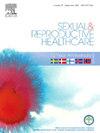Bridging the Gap: Canadian Parents’ barriers and concerns in delivering sexuality education – A qualitative study
IF 1.7
3区 医学
Q3 PUBLIC, ENVIRONMENTAL & OCCUPATIONAL HEALTH
引用次数: 0
Abstract
Background
Parents play a pivotal role in delivering comprehensive sexuality education (CSE) to their children. While school-based programs have expanded in many settings, parents often face cultural, informational, and emotional barriers in engaging in open discussions about sexual health. These challenges are intensified in diverse societies such as Canada, where cultural values and personal beliefs vary widely. Despite the growing recognition of parental involvement in CSE, limited research has explored Canadian parents’ perspectives on sexuality education, particularly in multicultural contexts.
Methods
We employed a community-based participatory research (CBPR) approach to examine the experiences, beliefs, and barriers Canadian parents face in providing sexuality education. Six virtual focus group discussions (FGDs) were conducted with 30 parents of children aged 0–18 years. Participants were recruited through purposeful and snowball sampling to ensure diverse representation. Data was analyzed using inductive thematic analysis to identify key themes related to parents’ understanding, approaches, and needs regarding sexuality education.
Results
Three major themes emerged (1) The holistic nature of sexuality education, emphasizing the importance of emotional, psychological, and social aspects alongside biology; (2) Timing and approaches, revealing uncertainty around when and how to initiate these conversations and a preference for child-led, ongoing dialogue; and (3) Influences of society, media, and schools, highlighting external factors shaping children’s understanding and parents’ concerns over misinformation and inconsistent educational content. Parents also reported difficulties accessing age-appropriate, culturally relevant, and accessible educational resources.
Conclusion
Canadian parents face multifaceted challenges in navigating sexuality education, shaped by cultural taboos, lack of resources, and limited confidence in initiating these discussions. The findings underline the need for inclusive, parent-focused resources, training, and policies that support caregivers in delivering accurate and age-appropriate sexuality education. Strengthening partnerships between families, schools, and healthcare systems is essential to bridge knowledge gaps and promote healthy sexual development in youth.
弥合差距:加拿大父母在提供性教育方面的障碍和担忧-一项定性研究
背景父母在为孩子提供全面的性教育(CSE)方面发挥着关键作用。虽然以学校为基础的项目在许多情况下已经扩大,但父母在参与公开讨论性健康时往往面临文化、信息和情感上的障碍。在加拿大等文化价值观和个人信仰差异很大的多元化社会中,这些挑战更加严峻。尽管越来越多的人认识到父母参与CSE,但有限的研究探索了加拿大父母对性教育的看法,特别是在多元文化背景下。方法采用基于社区的参与式研究(CBPR)方法来调查加拿大父母在提供性教育方面的经历、信念和障碍。对30名0-18岁儿童的家长进行了6次虚拟焦点小组讨论(fgd)。参与者通过有目的的滚雪球抽样来招募,以确保多样化的代表性。数据分析采用归纳主题分析,以确定与家长对性教育的理解、方法和需求相关的关键主题。结果:出现了三个主要主题:(1)性教育的整体性,强调情感、心理和社会方面的重要性;(2)时间和方法,揭示了何时以及如何启动这些对话的不确定性,以及对儿童主导的持续对话的偏好;(3)社会、媒体和学校的影响,突出了影响儿童理解的外部因素以及家长对错误信息和不一致教育内容的担忧。家长们还报告说,很难获得与年龄相适应的、与文化相关的、可获得的教育资源。结论加拿大父母在引导性教育方面面临多方面的挑战,包括文化禁忌、资源缺乏以及发起这些讨论的信心有限。研究结果强调,需要提供包容的、以家长为中心的资源、培训和政策,以支持照顾者提供准确和适龄的性教育。加强家庭、学校和卫生保健系统之间的伙伴关系对于弥合知识差距和促进青少年健康的性发展至关重要。
本文章由计算机程序翻译,如有差异,请以英文原文为准。
求助全文
约1分钟内获得全文
求助全文
来源期刊

Sexual & Reproductive Healthcare
PUBLIC, ENVIRONMENTAL & OCCUPATIONAL HEALTH-
CiteScore
2.70
自引率
5.60%
发文量
73
审稿时长
45 days
 求助内容:
求助内容: 应助结果提醒方式:
应助结果提醒方式:


